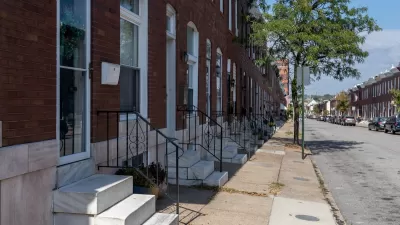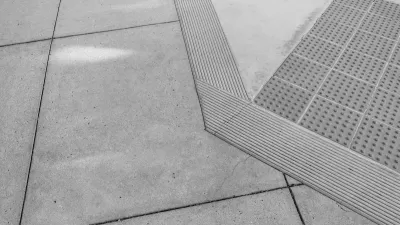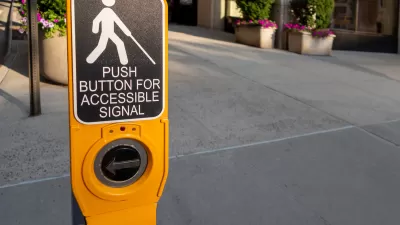Under the new rule, state and local governments would be required to adhere to a specific set of accessibility guidelines when designing, constructing, or altering pedestrian facilities in the public right-of-way, including transit stops.

The U.S. Department of Transportation has published a proposed rule to amend its rules implementing the transportation provisions under the Americans with Disabilities Act, according to an article in Smart Cities Dive. The rule would adopt pedestrian accessibility guidelines issued last year by the Architectural and Transportation Barriers Compliance Board into the department’s ADA regulations, making them a basis for enforcing standards. This is a big change because, according to Smart Cities Dive senior reporter Dan Zukowski, “Until now, state and local governments have been left to determine how to comply with the ADA’s mandate to make public pedestrian transportation facilities accessible to people with physical or mental impairments or a history of impairment.”
If adopted, the standards would apply to all new-construction or alterations to state and local government pedestrian facilities in the public right-of-way, including sidewalks, crosswalks, pedestrian traffic signals, transit stops, and on-street parking. The article calls out in particular the DOT’s concerns and requests for comment about the location of transit stops that overlap with vehicular lanes, including bicycle lanes, and put people with vision impairments or who use mobility aids like wheelchairs at risk of being struck. This is a frequent criticism by the disability community of “floating” bus stops that are separated from the curb by a bike lane. Public comment is open until September 23, 2024.
FULL STORY: US DOT proposes rule on pedestrian accessibility standards

Alabama: Trump Terminates Settlements for Black Communities Harmed By Raw Sewage
Trump deemed the landmark civil rights agreement “illegal DEI and environmental justice policy.”

Study: Maui’s Plan to Convert Vacation Rentals to Long-Term Housing Could Cause Nearly $1 Billion Economic Loss
The plan would reduce visitor accommodation by 25% resulting in 1,900 jobs lost.

Planetizen Federal Action Tracker
A weekly monitor of how Trump’s orders and actions are impacting planners and planning in America.

Wind Energy on the Rise Despite Federal Policy Reversal
The Trump administration is revoking federal support for renewable energy, but demand for new projects continues unabated.

Passengers Flock to Caltrain After Electrification
The new electric trains are running faster and more reliably, leading to strong ridership growth on the Bay Area rail system.

Texas Churches Rally Behind ‘Yes in God’s Back Yard’ Legislation
Religious leaders want the state to reduce zoning regulations to streamline leasing church-owned land to housing developers.
Urban Design for Planners 1: Software Tools
This six-course series explores essential urban design concepts using open source software and equips planners with the tools they need to participate fully in the urban design process.
Planning for Universal Design
Learn the tools for implementing Universal Design in planning regulations.
Caltrans
Smith Gee Studio
Institute for Housing and Urban Development Studies (IHS)
City of Grandview
Harvard GSD Executive Education
Toledo-Lucas County Plan Commissions
Salt Lake City
NYU Wagner Graduate School of Public Service





























